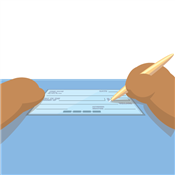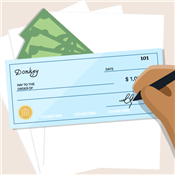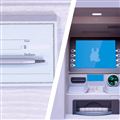Do People Still Use Checks
Do people still use checks? The short answer is yes. Keep reading to find out how.
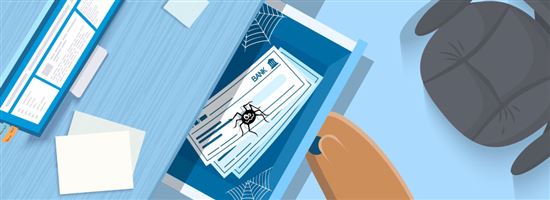 |
When is the last time you used a check, or even saw one? For many of us, it might be months or even years.
You might see them as outdated and unnecessary in a modern, digital world.
But the truth is, there are many good reasons to keep some checks on hand.
Below, we'll break down all the ways that checks are used today. Plus, discover the smart reasons you might want to order some from your bank.
Do People Still Use Checks?
Yes, they absolutely do. In fact, you might be surprised by how frequently checks are still used in the 21st century.
It's easy to get the impression that we live in a time of strictly digital transactions. But many people still use checks for common purposes, including:
- Paying your monthly rent
- Making purchases on behalf of your business
- Paying utilities
- Making charitable donations
Let's dive in and take a look at all the reasons that checks are still used today.
Why Checks are Still a Popular Form of Payment
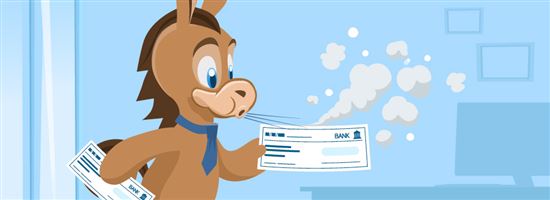 |
Don't count out checks just yet. Here are eight reasons why keeping checks on-hand is surprisingly common (and very smart).
1. Checks Are Accepted Nearly Everywhere
While most businesses accept common payment methods, there's always the possibility that you'll see a business that doesn't take your particular card. Or maybe they don't accept cash payments larger than a certain amount.
Because checks have such a long history of use, they're accepted nearly universally. The only exception is cash-only establishments, but even those are few and far between.
2. Checks Can Be Safely Mailed
There are strict laws around tampering with other people's mail, but most people still don't feel comfortable mailing cash.
Cash is easily recognizable, and there's always the chance that a thief will care more about an easy score than they will about the possibility of getting caught.
But checks are another story. First, checks are easier to hide and harder to recognize through an envelope. And while it is possible to cash a check that isn't yours, most people would agree it's not worth the effort or the potential risk.
Typically, you're pretty safe sending checks through the mail. In fact, many people mail checks for birthdays, to send money abroad, and for many more reasons.
3. Checks Can Be Traced
Checks can be traced by banks, adding to their security and usefulness.
This makes it easy to prove payment in case of a dispute—say with a landlord. And it's not just the bank that will have a copy; you'll have a carbon copy as well, left in your checkbook for easy reference later on.
You can keep track of where your money has gone, what you spent it on, and when. Which brings us to the next reason a lot of people still use checks: budgeting.
4. Checks Make Budgeting Easy
The trouble with cash is that unless you're fastidious about keeping your receipts, it leaves no record when it's gone. Once you've spent it, the only thing you're left with to prove it is whatever you spent it on.
Not so with checks. Since every check you write leaves a copy, you can easily tally up your spending and see precisely where your money is going.
Plus, credit and debit card statements can often be confusing due to unusual vendor names. Sometimes, vendors are only identified by a number.
If you use checks regularly, your transfers to other individuals will be in the same place as your grocery bills and your rent payments. All in one place.
5. Check Deposits Can Be Delayed
Since it usually takes a day or two for checks to clear,[1][2] it's possible to pay with checks in anticipation of the money being in your account by the time it's needed.
Of course, this does put you in danger of your check bouncing if your timing is off, which can have negative consequences. Make sure you know what you're doing, and use this method sparingly—if at all.
With people you're close to, you can also ask them to cash the check at a later date. That way, you can ensure that you have the money, and they can get paid even at times when you aren't able to meet them directly.
6. Cashing Checks Doesn't Require a Bank Account
Some people may not be aware of this, but you don't need a bank account to cash checks. You do need a bank account to write them, however.
Whether you're on the giving or the receiving end, not having a bank account can be a hurdle when it comes to transferring large amounts of cash, such as a paycheck.
Where many employers will set up direct deposits for their employees, direct deposits require a bank account. Offering payment in the form of checks is an easy way to circumvent this. Checks can be exchanged directly for cash.
7. Checks are Used by Working Professionals
We live in an economy of freelancers, gig workers, and contractors. For many of the reasons mentioned above, such as security, recordkeeping, and easy cash conversions, checks have long been the go-to form of payment for professionals in many industries.
By paying with checks, you can both take advantage of the benefits they offer, and set yourself up to look like a professional business person.
If you have any doubts, simply imagine how it would feel to finish a job and have your employer hand you an envelope of cash (a little sketchy, right?).
8. Checks Make Your Business Look Legit
Speaking of professionals, small business owners can get business checks, which have benefits beyond projecting a look of professionalism.
Business checks bear the name and address of your business, which can help your customers keep track of your business. It's also easier to keep track of your business expenses, which will benefit you in your accounting and certainly come tax season.
And of course, business checks do lend your business an air of legitimacy, and in the world of business, the impression you make can mean the difference between failure and success.
Bottom Line
While it's true that in most cases electronic payments are more practical, more convenient, and even more secure, checks do still have a place in the financial world.
If you're looking for an easy way to send money through the mail, pay a friend or family member, or transfer large amounts of money to an individual, there's a strong argument in favor of using checks.
And if you're a professional or small business owner, paying with checks can cement you as a legitimate business partner in the eyes of your customers and clients.
References
- ^ State of Connecticut Department of Banking. Availability of Funds Deposited Into Bank and Credit Union Accounts, Retrieved 5/14/2022
- ^ Electronic Code of Federal Regulations. Availability of Funds and Collection of Checks (Regulation CC), Retrieved 5/14/2022
Jeremy Harshman is a creative assistant at CreditDonkey, a bank comparison and reviews website. Write to Jeremy Harshman at jeremy.harshman@creditdonkey.com. Follow us on Twitter and Facebook for our latest posts.
|
|
|
